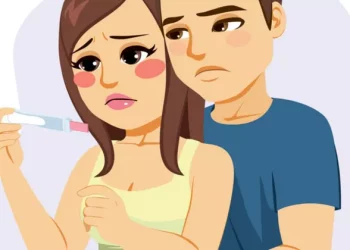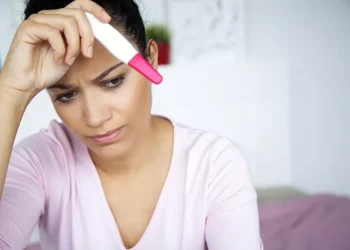Infertility can be a stressful and confusing experience for couples. If you’re struggling to conceive, understanding the underlying factors can be the first step towards a diagnosis and treatment plan. This article explores the most common cause of female infertility: ovulation disorders.
Ovulation Dysfunction
Ovulation dysfunction is the primary cause of female infertility, occurring when a woman’s body doesn’t ovulate (release an egg) regularly or at all. This issue can be influenced by several factors, ranging from hormonal imbalances to lifestyle influences. When ovulation is irregular or absent, the chances of natural conception decrease significantly.
Polycystic Ovary Syndrome (PCOS)
Polycystic Ovary Syndrome (PCOS) is the leading cause of ovulation problems. PCOS is a complex endocrine disorder that affects approximately 5-10% of women of reproductive age. The hallmark of PCOS is the presence of multiple small cysts on the ovaries and elevated levels of androgens (male hormones) in the body.
PCOS disrupts normal hormone regulation, leading to irregular ovulation or anovulation (absence of ovulation). Women with PCOS often experience a range of symptoms including irregular menstrual cycles, hirsutism (excessive hair growth), acne, and weight gain. The exact cause of PCOS remains unknown, but it is believed to involve a combination of genetic and environmental factors.
Hormonal Imbalances
Hormonal imbalances can significantly impact ovulation. Several key hormones must work in harmony to regulate the menstrual cycle and ovulation process. These include:
1. Thyroid Hormones: Both hypothyroidism (underactive thyroid) and hyperthyroidism (overactive thyroid) can disrupt menstrual cycles and ovulation. The thyroid gland plays a crucial role in regulating metabolism and hormone balance.
2. Prolactin: Elevated levels of prolactin, a hormone produced by the pituitary gland, can inhibit ovulation. This condition, known as hyperprolactinemia, may result from benign pituitary tumors, medications, or other underlying health issues.
3. Hypothalamus-Pituitary-Ovarian Axis: This complex feedback system involves the hypothalamus, pituitary gland, and ovaries. Disruptions in this axis, due to stress, excessive exercise, or significant weight changes, can impair the production of gonadotropin-releasing hormone (GnRH), leading to irregular or absent ovulation.
Age-Related Decline
As women age, their fertility naturally declines due to a decrease in both the quantity and quality of their eggs. This age-related decline becomes more pronounced after the age of 35. By the time a woman reaches her early 40s, her chances of conceiving naturally are significantly reduced.
The decline in egg quality with age is primarily due to an increase in chromosomal abnormalities, which can lead to difficulties in fertilization and an increased risk of miscarriage. Furthermore, older women are more likely to experience other health conditions that can affect fertility, such as endometriosis or fibroids.
Symptoms
Women experiencing ovulation dysfunction may notice several symptoms, including:
1. Irregular or absent menstrual periods
2. Difficulty getting pregnant despite regular, unprotected intercourse
3. Hormonal signs such as acne, excessive hair growth (particularly with PCOS), or thinning hair
4. Weight gain or difficulty losing weight
Recognizing these symptoms early and seeking medical advice can improve the chances of timely diagnosis and treatment.
Diagnosis
Diagnosing ovulation dysfunction typically involves a comprehensive evaluation by a healthcare provider specializing in reproductive health. The diagnostic process may include:
1. Medical History and Physical Examination: The doctor will review the patient’s medical history, including menstrual cycle patterns, symptoms, and any previous pregnancies or miscarriages. A physical examination may also be conducted to assess overall health and identify any signs of hormonal imbalance.
2. Blood Tests: Blood tests are crucial for assessing hormone levels. Key hormones tested include follicle-stimulating hormone (FSH), luteinizing hormone (LH), estradiol, prolactin, thyroid hormones, and androgens. These tests can help identify hormonal imbalances that may be affecting ovulation.
3. Ultrasound: Pelvic ultrasounds can provide valuable information about the ovaries and uterus. In women with PCOS, ultrasounds often reveal the presence of multiple small cysts on the ovaries. Ultrasound can also detect structural abnormalities such as fibroids or polyps.
4. Ovulation Tracking: Methods such as basal body temperature charting, ovulation predictor kits, and mid-luteal phase progesterone levels can help determine whether and when ovulation is occurring.
Treatment
Treatment for ovulation dysfunction depends on the underlying cause and the individual patient’s circumstances. Common treatment options include:
Medications to Stimulate Ovulation
1. Clomiphene Citrate: This oral medication is often the first line of treatment for women with ovulation dysfunction. Clomiphene citrate works by stimulating the release of FSH and LH from the pituitary gland, promoting ovulation.
2. Letrozole: Originally developed as a treatment for breast cancer, letrozole is increasingly used to induce ovulation. It is particularly effective in women with PCOS and works by reducing estrogen levels, which in turn stimulates the release of FSH and LH.
3. Gonadotropins: These injectable hormones (FSH and LH) directly stimulate the ovaries to produce and mature eggs. Gonadotropins are typically used when other medications have not been successful.
See also: After How Many Days of Your Period Do You Ovulate?
Lifestyle Changes
Making certain lifestyle modifications can significantly impact ovulation and overall fertility. Recommendations may include:
1. Weight Management: Achieving and maintaining a healthy weight is crucial for women with ovulation dysfunction, particularly those with PCOS. Both obesity and being underweight can disrupt hormone balance and ovulation.
2. Diet and Exercise: A balanced diet rich in nutrients and regular physical activity can improve overall health and support hormone regulation.
3. Stress Management: Reducing stress through techniques such as mindfulness, yoga, or counseling can positively affect the hypothalamus-pituitary-ovarian axis and improve ovulation.
Surgery
In rare cases where medications and lifestyle changes are not effective, surgical options may be considered. Procedures such as ovarian drilling (for PCOS) or the removal of fibroids or polyps can sometimes restore normal ovulation and improve fertility.
Additional Considerations
While ovulation dysfunction is the most common cause of female infertility, other factors can also contribute to difficulty conceiving. These include:
Blocked Fallopian Tubes
Fallopian tube blockages can prevent sperm from reaching the egg or hinder the fertilized egg from traveling to the uterus. Causes of blocked fallopian tubes include:
1. Pelvic Inflammatory Disease (PID): Infections such as chlamydia or gonorrhea can cause scarring and blockages in the fallopian tubes.
2. Endometriosis: This condition, where tissue similar to the uterine lining grows outside the uterus, can cause adhesions and blockages.
3. Previous Surgeries: Surgeries involving the pelvis or abdomen, including those for ectopic pregnancies, can lead to scar tissue formation and blockages.
Uterine Fibroids or Polyps
Fibroids are benign tumors that grow within the muscle tissue of the uterus, while polyps are growths that protrude from the uterine lining. Both can interfere with the implantation of a fertilized egg or lead to miscarriages. Symptoms of fibroids or polyps may include heavy menstrual bleeding, pelvic pain, and frequent urination.
Endometriosis
Endometriosis affects approximately 10% of women of reproductive age and is a significant cause of infertility. It occurs when tissue similar to the uterine lining grows outside the uterus, causing inflammation, pain, and adhesions. Endometriosis can affect the ovaries, fallopian tubes, and other pelvic organs, leading to a decreased likelihood of conception.
Unexplained Infertility
In some cases, infertility may remain unexplained despite thorough testing and evaluation. Unexplained infertility accounts for approximately 10-20% of all infertility cases. While the exact causes are not identified, factors such as subtle hormonal imbalances, immune system issues, or genetic factors may play a role.
Seeking Professional Help
If you’re concerned about infertility, consulting a doctor specializing in reproductive health is essential. Early diagnosis and intervention can significantly improve your chances of a successful pregnancy. Your healthcare provider can guide you through the diagnostic process, discuss potential treatment options, and provide support throughout your fertility journey.
See also: Cystic Fibrosis and Female Infertility
Emotional Support
Infertility can be an emotionally challenging experience. It’s important to seek emotional support from friends, family, or support groups. Many couples also find counseling or therapy helpful in coping with the stress and emotional impact of infertility.
Future Technologies and Research
Advancements in reproductive medicine continue to offer new hope for couples facing infertility. Ongoing research is exploring innovative treatments and technologies, such as:
1. In Vitro Maturation (IVM): This technique involves harvesting immature eggs from the ovaries and maturing them in the laboratory before fertilization. IVM may be particularly beneficial for women with PCOS or those at risk of ovarian hyperstimulation syndrome (OHSS).
2. Stem Cell Therapy: Researchers are investigating the potential of stem cell therapy to regenerate ovarian tissue and restore fertility in women with premature ovarian failure or other ovarian conditions.
3. Genetic Testing and Gene Editing: Advances in genetic testing and gene editing technologies hold promise for identifying and potentially correcting genetic causes of infertility.
Conclusion
Understanding the most common cause of female infertility—ovulation dysfunction—is a crucial step towards seeking effective treatment and achieving a successful pregnancy. By recognizing the symptoms, obtaining an accurate diagnosis, and exploring appropriate treatment options, many women can overcome ovulation-related infertility and realize their dream of parenthood. If you suspect that you may have an ovulation disorder or other fertility issues, don’t hesitate to seek professional help and support. Early intervention can make a significant difference in your fertility journey.
Related Topics:
Rates and Causes of Infertility in Women: A Complete Overview



























